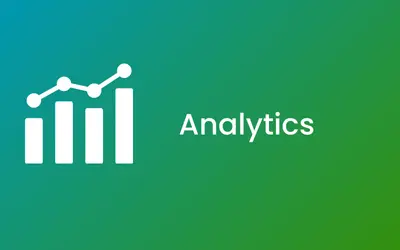Analytics is an essential field that has seen increased demand across various industries. The field revolves around the analysis of data to make informed decisions. With Sydney becoming a hub for technological advancements, it is no surprise that the city boasts various top-class institutions offering analytics courses. If you're looking to build a strong foundation in analytics, you should consider pursuing a course in Sydney. There are several benefits of enrolling in a course in Sydney, including: 1. Industry-focused curriculum - Sydney-based analytics courses have a curriculum that is tailored to meet the demands of the industry. The courses also have a practical focus, and you can expect to work on real-world projects to apply the concepts learned in class. 2. State-of-the-art facilities - Sydney institutions have world-class facilities equipped with the latest technology needed to facilitate the learning process. You'll have access to the best computing resources, data sets, and software, making it easy to grasp complex analytics concepts. 3. Networking opportunities - Enrolling in an analytics course in Sydney gives you access to a vast network of professionals in the industry. You'll have the chance to interact with industry leaders, guest lecturers, and experts in the field during seminars and conferences. 4. Career prospects - With a booming IT industry in Sydney, completing an analytics course positions you well for job opportunities. The skills you acquire are transferable across various sectors, including healthcare, finance, e-commerce, and more. Now that you know what to expect from an analytics course in Sydney, let's look at some top institutions in the city that offer these programs: 1. University of Technology Sydney (UTS): UTS provides a Masters in Analytics program that equips students with a deep understanding of the principles of data analytics. Students learn how to use statistical tools, data mining, and data visualization to extract insights from large data sets. The program also includes real-world projects that give students hands-on experience in solving industry-specific issues. 2. Macquarie University: Macquarie University offers a Masters in Business Analytics program that teaches students how to use analytical tools and techniques to drive business outcomes. The program covers areas such as data modeling, predictive analysis, and machine learning. Students get to apply these concepts through hands-on projects across various industries, including finance and marketing. 3. University of Sydney: The University of Sydney offers a Masters in Data Science and Innovation program that focuses on equipping students with the skills to use data to solve complex problems. The program covers areas such as data mining, data visualization, and machine learning. It also provides networking opportunities through guest lectures and industry visits. 4. UNSW Sydney: UNSW Sydney has a Masters in Analytics program that teaches students how to use analytics to drive business outcomes in various industries, including finance, marketing, and healthcare. The program focuses on enhancing students' analytical skills and data visualization using analytical tools such as Python and R. In conclusion, pursuing an analytics course in Sydney opens up a world of opportunities for professionals seeking to enhance their analytical skills. With a focus on practical applications, state-of-the-art facilities, and networking opportunities, the institutions listed above offer top-class analytics courses that can set you on the path towards a successful career in analytics.

₹60,000


Watch how students, freshers, and professionals transformed their careers with Skillfloor's Analytics Courses Reviews
Hurry Up!
Limited seats call us now for amazing discounts on Analytics Courses course



Skillfloor is a Government-Recognized Skill Development Institute under Startup India (DPIIT), offering career-focused certification programs in Analytics, Artificial Intelligence (AI), Data Science, Digital Marketing, SEO, and related domains. As one of India's largest training institutes, our courses emphasize hands-on projects, expert mentorship, and skills aligned with real hiring needs. With flexible learning options - online, offline, and hybrid, plus 100% scholarships for selective students, we make quality, job-ready education accessible.
Explore the program that aligns with your goals and take the next step with Skillfloor.



- Overview of data analysis and its importance in business
- Types of analytics: Descriptive, Predictive, Prescriptive
- Role of data in decision-making processes
- Introduction to common tools: Tableau, PowerBI, Excel
- Ethical considerations in data collection and analysis
- Data sources: Primary and secondary data
- Data collection methods (surveys, web scraping, databases)
- Data cleaning techniques (handling missing values, outliers)
- Data transformation and feature engineering
- Data storage concepts (structured vs. unstructured data)
- Descriptive statistics: Mean, median, mode
- Data visualization basics (histograms, scatter plots)
- Identifying data patterns and trends
- Outlier detection and handling methods
- Correlation and causation analysis
- Inferential statistics and probability theory
- Hypothesis testing (t-tests, chi-square tests, ANOVA)
- Measures of central tendency and variability
- Confidence intervals and margin of error
- Regression analysis: Linear and logistic regression
- Principles of effective data visualization
- Types of charts and their uses (bar, line, pie, heatmaps)
- Designing dashboards for different audiences
- Interactive visualization techniques
- Data storytelling for impactful presentations
- Time series analysis and forecasting methods
- Clustering and segmentation analysis
- Decision trees and classification techniques
- Introduction to machine learning in business analytics
- Model evaluation and selection
- Basics of SQL for data manipulation
- Creating databases and relationships
- Aggregating data with SQL (GROUP BY, JOIN)
- Data modeling for business intelligence (star and snowflake schemas)
- Case study: Building a business model with SQL
- Connecting and preparing data in Tableau
- Creating basic visualizations (charts, maps)
- Advanced Tableau functions (LOD calculations, table calculations)
- Building interactive dashboards and stories
- Publishing and sharing visualizations on Tableau Server/Online
- Introduction to PowerBI workspace and components
- Data import and transformation with Power Query
- Data modeling and relationships in PowerBI
- Creating and customizing visualizations
- Publishing and collaborating on PowerBI Service
- Selecting a real-world dataset for analysis
- Defining business questions and objectives
- Conducting data analysis and visualization
- Presenting findings in a comprehensive dashboard
- Peer review and feedback on project